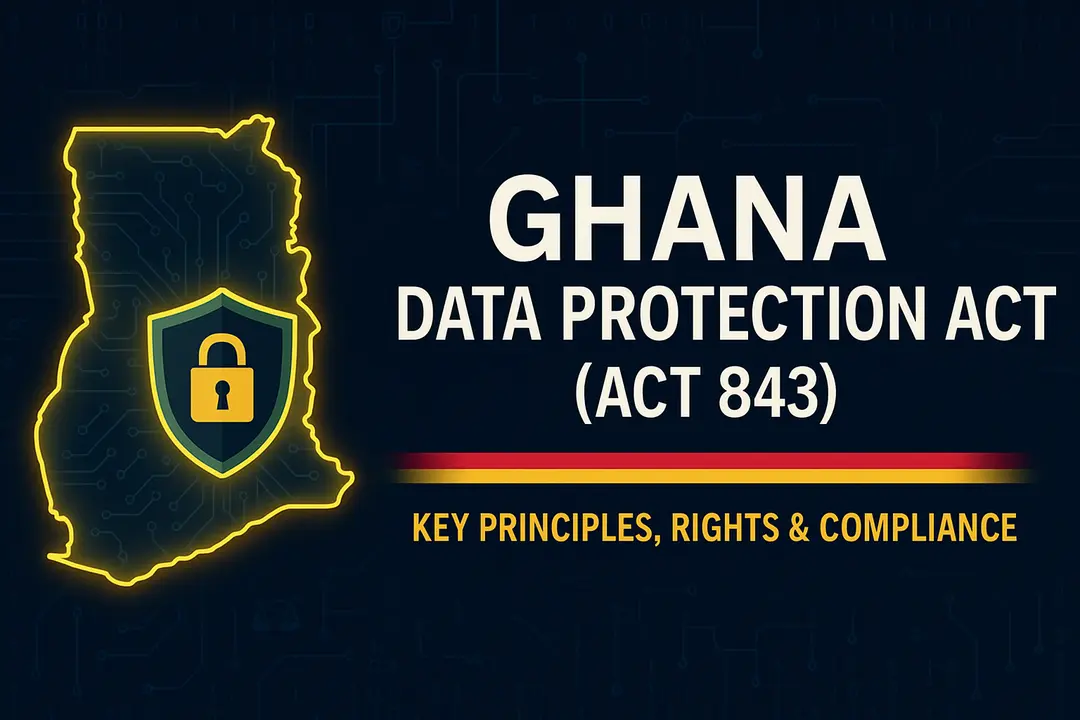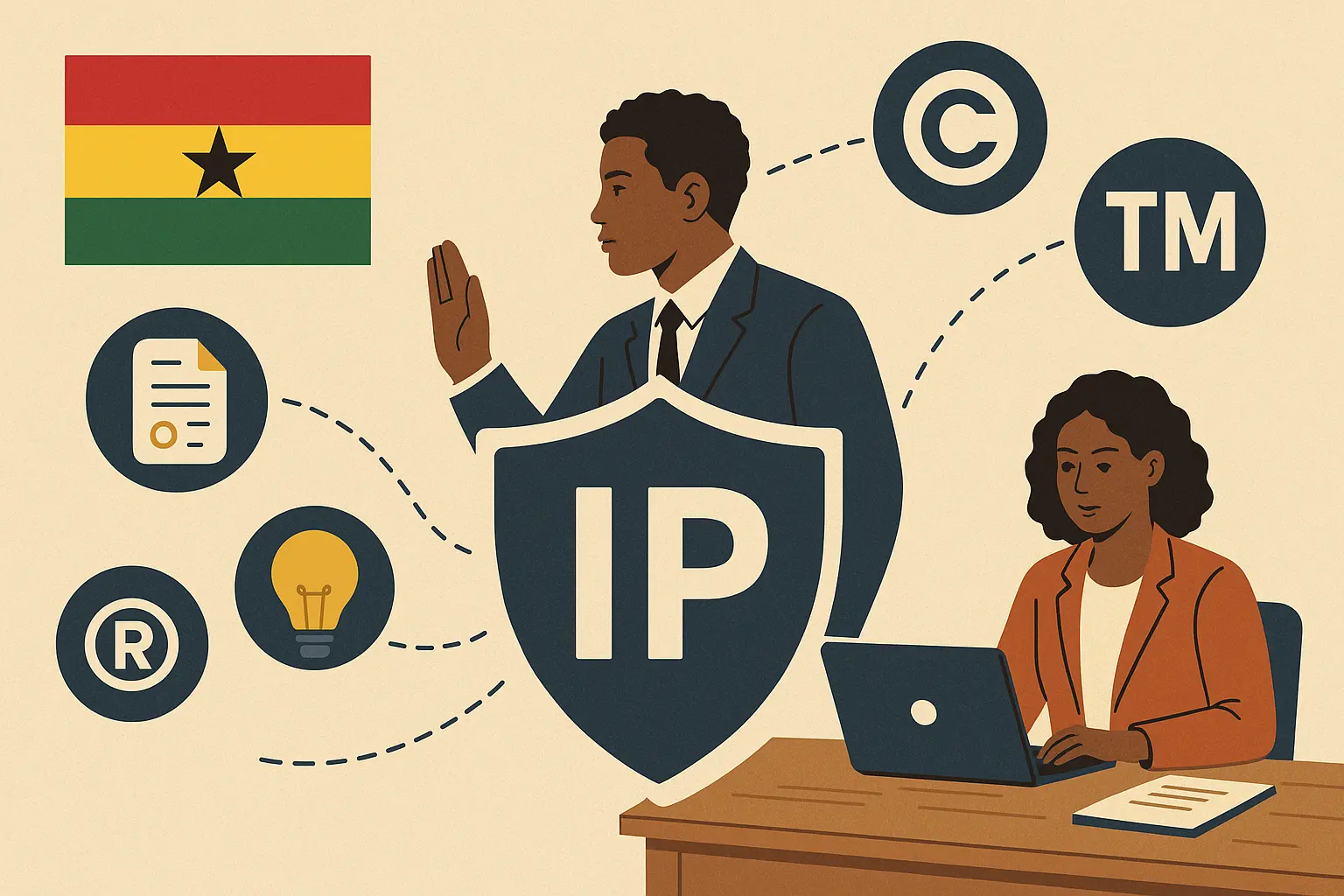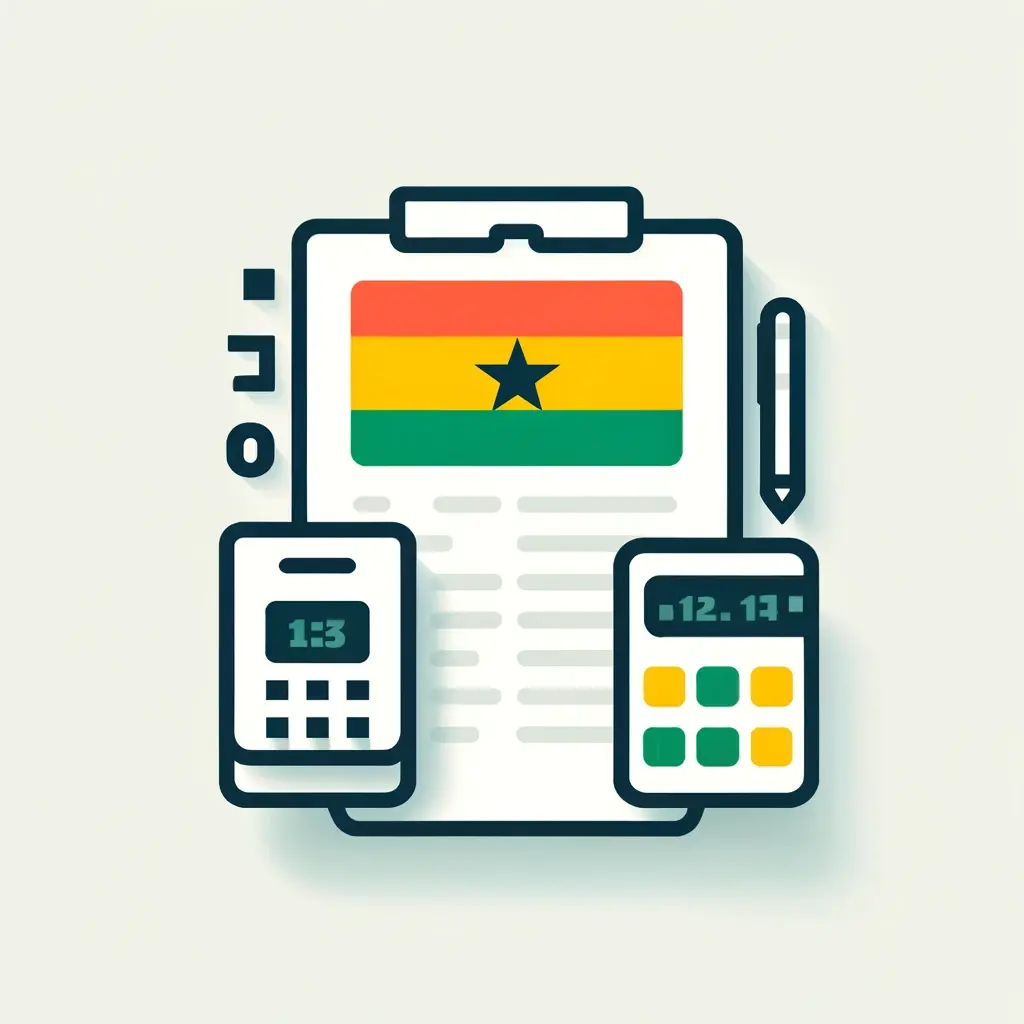An Overview Of Data Protection Law In Ghana
As digital technology becomes increasingly central to business, governance, and everyday life, the need to safeguard personal data has gained global significance. Recognizing the risks associated with the misuse of personal information, Ghana has taken proactive steps to establish a legal framework that ensures data protection and privacy rights for its citizens and residents. The cornerstone of this framework is the Data Protection Act, 2012 (Act 843).
This article explores the key provisions, principles, and implications of Ghana’s data protection laws, offering insight into how the country is addressing privacy in the digital age.
The Legal Framework: Data Protection Act, 2012 (Act 843)
Data protection is the process of safeguarding important information from corruption, compromise, or loss. Ghana’s Data Protection Act, 2012 (Act 843) was enacted to regulate the processing of personal information, particularly in the context of digital communication and record-keeping. The Act establishes the rights of individuals regarding their personal data and imposes obligations on organizations that collect, store, or process such data.
The main objectives of the Act include safeguarding the privacy of individuals, regulating the collection, use, and disclosure of personal data, and ensuring transparency and accountability in data handling practices.
Core Principles of Data Protection
The concept of data protection is underpinned by certain key principles organizations are required to follow to ensure personal data is collected, used, managed, and stored in a responsible manner. While these principles may vary slightly according to various legislations, they are generally influenced by the globally accepted General Data Protection Regulation (GDPR).
In Ghana, Act 843 sets out eight key principles that govern the processing of personal data as provided under Sections 17 to 33. These are accountability, lawfulness of processing, specification of purpose, compatibility of further processing, quality of information, openness, data security safeguards and data subject participation.
The above principles represent the core obligations of data controllers under Act 843 and are designed to promote accountability and protect individuals' privacy. They require organizations to handle personal data responsibly, lawfully, and in a transparent manner, collecting it only for specific purposes, keeping it accurate and secure, and ensuring individuals are informed and can exercise their rights over their own data.
The Role of the Data Protection Commission
Section 1 of Act 843 establishes the Data Protection Commission (DPC) as the regulatory authority responsible for implementing, monitoring and enforcing data protection laws in Ghana.
Its responsibilities include:
- Registering data controllers and data processors;
- Promoting awareness of data protection rights and responsibilities;
- Investigating complaints and enforcing compliance;
- Issuing guidelines, codes of conduct, and sanctions where necessary.
Rights of Data Subjects
Under Section 39 of Act 843, individuals whose personal data is collected or processed—referred to as data subjects—are granted several rights to protect their privacy and ensure transparency. These include the right to be informed when their data is being collected, the right to access and correct their personal data, the right to object to certain forms of processing, the right to withdraw consent at any time, and the right to lodge a complaint with the Data Protection Commission if they believe their rights have been violated.
Who Must Comply
The Data Protection Act, 2012 (Act 843) applies to all data processors and controllers operating in Ghana, including but not limited to financial institutions, healthcare providers, telecommunications companies, and educational institutions. It also extends to entities based outside Ghana that process personal data relating to individuals within the country.
Registration with the Data Protection Commission
Every organization that handles personal data, i.e., data processors and controllers, is required to register with the Data Protection Commission (DPC).
To begin the registration process, the data controller or processor must complete a registration form provided by the DPC. This form requires key information about the organization, including its legal status, nature of operations, categories of personal data collected, the purpose for processing, and security measures in place to protect the data. Applicants must also submit supporting documents such as a certificate of incorporation, business license, TIN, and proof of payment of the applicable registration fee.
Upon approval, the Commission issues a Certificate of Registration, authorizing the organization to lawfully process personal data. This registration is valid for one year and must be renewed annually.
Offences and Penalties
The Data Protection Act, 2012 (Act 843) imposes both civil and criminal liabilities for non-compliance with its provisions. Offences under the Act include failure to register with the Data Protection Commission (DPC), the unlawful disclosure of personal data, failure to implement appropriate data security measures, and obstruction of investigations conducted by the Commission. Depending on the nature and severity of the offence, penalties may be in the form of fines, imprisonment or both.
Additionally, the Commission is empowered to impose administrative sanctions such as the suspension or cancellation of an organization’s registration.
Conclusion
Ghana’s Data Protection Act, 2012 (Act 843) plays a crucial role in promoting data privacy and security in an increasingly digital environment. As organizations and public institutions increasingly rely on personal data, complying with the law is not only mandatory but also vital for establishing trust with clients and the public.
Whether you are a business operator, employee, or individual, it is important to be aware of your rights and responsibilities under the Act to ensure responsible handling and use of personal data.
General Overview of the Acquisition of Mineral Rights in Ghana
Introduction
Ghana's mineral sector is a cornerstone of the national economy and a critical driver of foreign direct investment, contributing significantly to the country’s export earnings, employment, and public revenue. Recognised as a leading mining jurisdiction in Sub-Saharan Africa, Ghana is the largest gold producer on the continent and ranks among the top ten globally.
The legal foundation for mineral resource governance in Ghana is rooted in a constitutional principle that vests all minerals in their natural state in the President, held in trust for the people of Ghana. This principle applies regardless of private ownership of land. Therefore, a person with legal title to land that contains mineral deposits cannot conduct reconnaissance, prospecting, or mining activities unless granted a mineral right by the State.
Types of Mineral Rights
A mineral right is a legal interest granted by the State which confers upon its holder the authority to undertake specific activities related to mineral resources.
There are six types of mineral rights under Ghanaian law. These are the reconnaissance license, the prospecting license, the mining lease, and their corresponding restricted versions; restricted reconnaissance license, restricted prospecting license, and restricted mining lease. Restricted rights are typically reserved for Ghanaian companies or apply to specific minerals such as industrial materials.
Reconnaissance License
A reconnaissance license grants the holder the right to search for minerals using non-intrusive techniques such as geophysical, geochemical, and remote sensing surveys. This form of license does not allow the holder to engage in drilling or excavation. It is typically issued for a period not exceeding twelve months and may, under exceptional conditions, be extended once for an additional twelve months.
Prospecting License
The next stage in the mineral development process is governed by the prospecting license. This license allows the holder to conduct operations aimed at determining the extent and economic value of a mineral deposit. A prospecting license is issued for an initial period not exceeding three years and may be renewed once for a further three years. Any application for renewal must be submitted at least three months before the license expires.
Mining Lease
Where commercial viability is established, the holder may apply for a mining lease. This lease may also be applied for by any qualified person in respect of land not already subject to a mineral right for the same mineral. The mining lease grants the right to mine and extract minerals for commercial purposes. It is typically issued for a term of up to thirty years, with a possibility of renewal for a further thirty years. Applications for renewal must be submitted at least three months before the lease expires, unless the Minister responsible for Lands and Natural Resources allows a shorter notice period.
It is important to note that activities carried out under a mineral right must strictly adhere to the scope of the right granted. For instance, holders of reconnaissance licenses cannot engage in prospecting or mining activities. Similarly, each stage of mineral development - reconnaissance, prospecting, and mining requires a separate application and grant.
Qualification and Procedure for the Grant of Mineral Rights in Ghana
Qualification
To qualify for a mineral right in Ghana, the applicant must be a company or partnership registered under Ghanaian law. Individual persons are generally not eligible, except in cases where the law provides otherwise.
Procedure
The authority to grant, revoke, suspend, or renew mineral rights rests with the Minister for Lands and Natural Resources, acting on behalf of the President and based on recommendations from the Minerals Commission.
The Commission is the first point of contact for any application. Applicants must submit the completed forms with the prescribed fees and supporting documentation. Upon satisfying itself that the application meets all legal and technical requirements, the Commission submits a formal recommendation to the Minister.
Once the Minister receives this recommendation, a decision is made on whether to approve or reject the application. If approved, the Minister issues a written notice to the applicant stating the terms of the mineral right. The applicant must respond immediately in writing to indicate acceptance of the offer. The failure to do so causes the approval to lapse.
Once the acceptance is received, the Minister proceeds to formally grant the mineral right. Thus, the issuance of a mineral right is contingent not just on the Minister’s approval but also on the applicant’s timely acceptance.
Transferability and Financial Obligations of Mineral Rights Holders
Transferability
Mineral rights, once granted, may be transferred, assigned, or mortgaged in whole or in part. However, such transactions require the prior written consent of the Minister. Without this approval, the transaction is deemed null and void.
Financial Obligations
Holders of mineral rights are also subject to several financial obligations. They must pay annual ground rent as prescribed by law. This rent is payable to the landowner or their successors.
Where the land is part of stool lands (lands under traditional authority), the rent must be paid to the Office of the Administrator of Stool Lands. In addition, holders of mining leases, restricted mining leases, or small-scale mining licenses are required to pay royalties to the Government of Ghana. The royalty rate is calculated on the total revenue from minerals obtained.
There is also a requirement to pay annual mineral right fees, which are made to the Minerals Commission. Failure to comply with these financial obligations could result in the suspension or revocation of the mineral right.
Investment Incentives for Mineral Rights Holders
To promote investment in the mining sector, Ghana offers several incentives to mineral right holders. These include exemptions from import duties on mining equipment and accessories, tax reliefs on furnished accommodation provided to mining staff, and approved immigration quotas for expatriate personnel. Expatriates are also entitled to a tax-free remittance quota for transferring personal earnings out of the country.
Moreover, the law guarantees mining leaseholders the free transferability of foreign exchange earnings. This can be done either through the Bank of Ghana or, in the case of entities recognised as net foreign exchange earners, through accounts established for that purpose.
Summary
In summary, the acquisition of mineral rights in Ghana is a structured and transparent process anchored in legislation. While the system offers significant investment opportunities, it also demands strict compliance with procedural requirements and regulatory obligations. Prospective applicants - whether local or international must approach the process with due diligence, a clear understanding of the legal framework, and readiness to fulfil their responsibilities to both the State and affected communities. With these foundations, Ghana continues to maintain its status as one of Africa’s leading destinations for sustainable mineral investment.
This guide provides general information on the acquisition of mineral rights in Ghana and is not intended as legal advice for specific situations. For guidance tailored to your circumstances, we recommend seeking professional legal advice. You may contact us at contact@olaryealaw.com for further assistance.
Intellectual Property Protection in Ghana: Essential Guide for Businesses
Understanding Intellectual Property Basics
What is intellectual property?
Intellectual property (IP) encompasses the creative output of human intellect, including inventions, literary and artistic expressions, distinctive designs, symbols, names, and images used in commercial activities.
For businesses, IP represents one of the most valuable assets that can drive competitive advantage and long-term success.
Why is intellectual property important for my business?
Whether you're a startup developing innovative technology, an SME building brand recognition, or an investor evaluating portfolio companies, understanding and protecting intellectual property rights is crucial for long-term success and competitive advantage. IP constitutes valuable business assets requiring strategic management and can significantly impact business valuation and competitive positioning.
What laws govern intellectual property protection in Ghana?
Ghana's intellectual property framework operates under the following primary statutes:
- Patents Act, 2003 (Act 657) and Patent Regulations, 1996 (L.I. 1616)
- Copyright Act, 2005 (Act 690) and Copyright Regulations, 2010 (L.I. 1962)
- Trademarks Act, 2004 (Act 664) and Trade Marks Regulations, 1970 (L.I. 667)
- Industrial Designs Act (Act 660)
Patent Protection
What is a patent and what does it protect?
Patents protect inventions that provide technological solutions to identified problems.
It grants the holder exclusive rights to prevent others from making, using, or selling an invention within Ghana for a specified period.
What are the requirements for an invention to be patentable in Ghana?
For an invention to qualify for patent protection in Ghana, it must satisfy four fundamental criteria:
- Novelty: The invention must be entirely new and not previously disclosed to the public. Inventive Step: The invention must be non-obvious to someone skilled in the relevant technical field
- Industrial Applicability: The invention must be capable of being manufactured or utilized in any industry, demonstrating practical commercial value.
- Statutory Eligibility: The invention must not fall into excluded categories.
How long does patent protection last?
Patent protection extends for twenty (20) years from the filing date.
To maintain protection, you must pay annual maintenance fees throughout this period. Patents can be assigned, licensed, or transferred, and patent holders may pursue legal remedies including injunctions and damages for infringement.
Trademark Protection
What is a trademark?
A trademark is any word, symbol, device, sign, or combination that distinguishes your goods or services from those of competitors in commercial transactions. Think of it as your business's unique identifier in the marketplace.
How do I register a trademark in Ghana?
Trademark registration involves filing an application with the Trademarks Registry, specifying the goods or services you want to protect. The application will be examined for distinctiveness of the mark, absence of confusion with existing registrations, compliance with requirements under the Trademarks Act.
How long does trademark protection last?
Registered trademarks receive protection for ten (10) years from the filing date, renewable for consecutive ten-year periods upon payment of prescribed fees.
What can I do if someone infringes my trademark?
Trademark owners may institute civil proceedings for infringement, seeking injunctions, damages, and other remedies.
Trademark rights may also be assigned or licensed subject to statutory requirements.
Copyright Protection
What does copyright protect?
Copyright protects original expressions in literary, artistic, musical, audio-visual, choreographic, derivative works, and computer software programs created by Ghanaians or persons resident in Ghana.
What rights do I have as a copyright owner?
Copyright ownership grants both economic and moral rights over creative works.
How long does copyright protection last?
Protection duration varies according to authorship:
- Individual authors: Life of the author plus seventy years
- Joint authorship: Life of the surviving author plus seventy years
- Corporate authorship: Seventy years from creation or first publication
Strategic Business Considerations
How should I manage my intellectual property assets?
Intellectual property constitutes valuable business assets requiring strategic management.
Proper identification, protection, and exploitation of intellectual property can significantly impact business valuation and competitive positioning.
What due diligence should my business conduct regarding intellectual property?
Businesses must conduct appropriate due diligence to ensure:
- Freedom to operate without infringing existing rights
- Adequate protection of proprietary information
- Compliance with employee confidentiality obligations
- Effective monitoring and enforcement strategies
Can foreign individuals and companies protect their IP in Ghana?
Yes, Ghana's IP laws provide protection for both residents and non-residents.
What happens if I don't protect my IP in Ghana?
Without proper IP protection, you may risk losing exclusive rights to your innovations, brands, or creative works; Competitors freely using your unprotected IP and reduced investment attractiveness
Do I need separate protection for each type of IP?
Yes, different types of IP require separate applications and protection mechanisms.
Can I license my IP rights in Ghana?
Yes, IP rights can be licensed, assigned, or transferred subject to statutory requirements and proper documentation. Licensing agreements and IP transfers should be carefully structured with professional legal assistance to protect your interests and comply with Ghanaian law.
How does IP protection affect investment and business valuation?
Well-protected IP significantly enhances business valuation and investment attractiveness. Investors evaluate IP portfolios when making investment decisions, and strong IP protection provides competitive advantages and revenue opportunities through licensing. A comprehensive IP strategy should align with your business objectives and investment goals.
What can I do if someone infringes my intellectual property rights?
IP rights holders may pursue civil remedies for infringement, including:
- Injunctive relief: Court orders to prevent continued infringement
- Monetary damages: Compensation for losses incurred
- Account of profits: Recovery of profits the infringer gained
- Delivery up or destruction: Removal of infringing materials from the market
Should I consult a lawyer for intellectual property matters?
Early consultation with qualified legal counsel ensures optimal protection strategies tailored to your specific business requirements.
Need Expert Legal Guidance?
Our experienced legal team specializes in intellectual property protection for businesses of all sizes. We help startups, SMEs, and investors navigate Ghana's IP landscape effectively, ensuring your innovations and brands receive the protection they deserve.
Contact us today to schedule a consultation and develop a customized IP protection strategy that aligns with your business objectives and budget.
This guide provides general information regarding intellectual property law in Ghana and does not constitute legal advice for specific circumstances. Professional legal consultation is recommended for particular matters.
Understanding Tax Filing Obligations for Companies in Ghana
Corporate Tax
Companies registered in Ghana are required to pay corporate tax on the company's annual profit. The current corporate tax rate is 25%.
Filing Process for Corporate Tax:
Provisional Assessment: The Company will be provided a provisional assessment of the company's tax liability based on its revenue, as determined by the Commissioner at the start of the financial year. This is an initial assessment that serves as a preliminary estimation.
The taxpayer is required to pay the assessed amount based on the initial assessment in four quarters of the related year.
Preparation of Financials: At the end of the financial year, the Company is required to prepare its financial accounts, including the profit and loss account, balance sheet, and cash flow statement, which should be audited and signed off by an auditor.
Submission of Company Income Tax Return and Financial Statement: The Company is required to submit a Company Income Tax Return along with the financial accounts to the GRA. This return must be completed using the prescribed form and filing is due by April of the following year.
Final Assessment: The GRA issues a final tax assessment based on the submitted financial accounts. Any outstanding tax liabilities must be settled by the company.
Personal Income Tax (P.I.T)
Individuals are required to pay Personal Income Tax (PIT) on the total of their chargeable income, which encompasses all income generated from employment, business or investments less any allowable deductions for the year.
Personal Income Tax is applied based on graduated tax rates rather than a flat rate. This means that the tax payable is dependent on the taxpayer's income. Consequently, higher earnings result in a proportionally higher tax obligation.
Filing Process for Personal Income Tax:
Provisional Assessment: The taxpayer receives a provisional assessment of tax, which is based on an initial evaluation of the individual's chargeable income. This provisional assessment provides an estimated amount that the taxpayer is required to pay.
Submitting an Income Tax Return: at the end of the period, the taxpayer is required to submit an income tax return for the assessment year. This return must be completed using the prescribed form and submitted no later than 4 months after the conclusion of the basis period.
Final Assessment: Upon receiving the return of income and any other relevant information, the Commissioner will proceed to make a final assessment of the taxpayer's chargeable income and determine the tax payable based on this assessment. Any outstanding payments will be communicated to the taxpayer, who is required to settle them promptly.
Pay–As–You–Earn (PAYE):
Employers in Ghana are required to withhold income tax from the wages and salaries of their employees (Pay-As-You-Earn or PAYE) and remit the withheld taxes to the Ghana Revenue Authority. The PAYE tax is graduated depending on the income range.
All employers are also required to file annual returns of employees with the GRA, disclosing income paid to and tax withheld from each employee, within four months of the end of the calendar year.
Filing Process for Pay–As–You–Earn (PAYE)
Employers are required to deduct Pay As You Earn (PAYE) from the monthly salary of each employee.
The accumulated PAYE amount for the month is to be remitted to the Ghana Revenue Authority (GRA) at the end of the month.
Employers must fill out and submit monthly PAYE deductions returns along with a schedule detailing the names and Ghana card numbers of employees and the corresponding amounts paid. Payment of the amount due must be paid to the GRA.
Consequences for Non-Compliance
Companies that fail to comply with their tax filing obligations within the stipulated timeframe become liable to administrative penalties for the duration that the default continues.
By understanding the filing requirements, adhering to deadlines, and seeking appropriate legal assistance, companies can ensure compliance with Ghanaian laws and avoid potential penalties for non-compliance.
For more information on how we can assist your company in meeting regulatory requirements and ensuring compliance with the law, please contact us at contact@olaryealaw.com / +233 (0)201068192.



